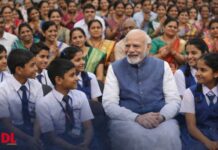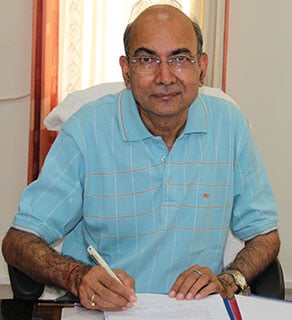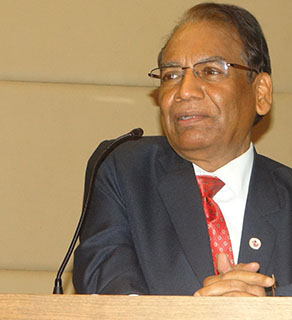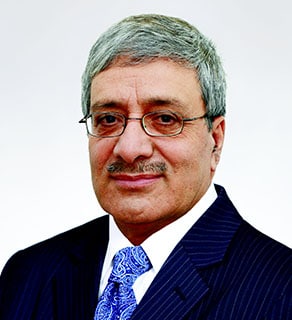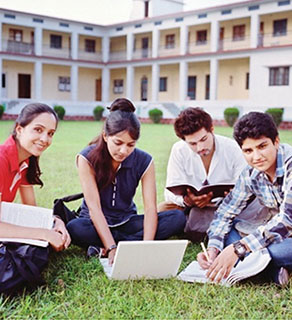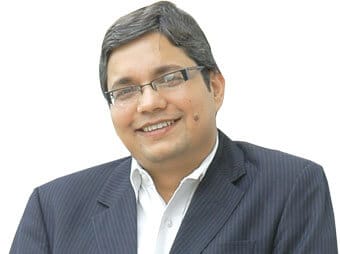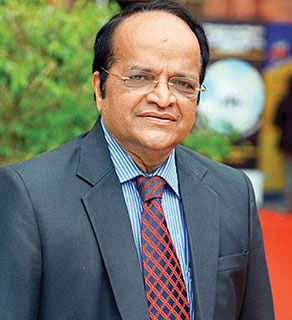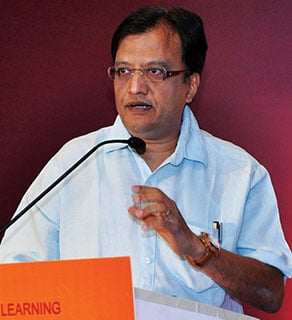The concept of Digital India should begin with higher education, especially in the professional institutions like medical, law, engineering, etc., and later enter basic traditional universities and colleges, Prof. S Jeelani, Director, Centre for Distance and Virtual Learning, University of Hyderabad, tells Elets News Network
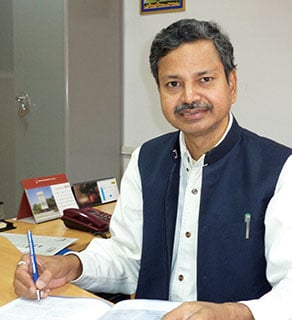 What are the challenge areas which you think that need to be urgently addressed so as to revamp Indian higher education in general and your state?
What are the challenge areas which you think that need to be urgently addressed so as to revamp Indian higher education in general and your state?
In India, many national research institutions are involved in excellent work in various applied aspects like rural development, agriculture, geology, meteorology, telecommunications and other fields. Such institutions may be given degree awarding facility by simplifying procedures of the regulatory bodies so that the available infrastructure, laboratories, library, hostels can help facilitate admission to various career and placement oriented courses.
The challenges include strengthening quality; promoting technology based learning; revision of course syllabi and curriculum; accreditation and offering professional courses like medicine, engineering, pharmacy etc to students through a subsidised fee structure by government and private institutions.
What are the new initiatives which you have taken as the Director? Can you suggest if any of them can be implemented at pan-India level?
Offering joint collaborations with the public institutions and collaborations with industries in offering job oriented courses need to be initiated. Promoting technology based and virtual learning for those who cannot come regularly to the university from rural areas is also required.
There have been suggestions that India needs to address the issue of increasing the gross enrolment ratio from 18 per cent to more than 30 per cent. This calls for substantial investment and a paradigm shift in our education policy. How do you see it?
Increase of course enrolment ratio from 18 per cent to 30 per cent is a major challenge where it needs strengthening of existing 700 universities by means of appointment of faculty, administrative staff, etc., in the available vacancies. Jurisdiction of each state university may be expanded at least for two or three states so that colleges in one state can get affiliation with another university in the neighbouring state. Establishment of common resource centres with all common facilities like virtual classrooms, instruments, laboratory facilities, and seminar and conference halls in each state is also required. We should also look at networking of colleges and universities so the lecture in one university can be shared and viewed by other university students. Increase of student enrolment may be given more emphasis in rural and semi- urban areas where there are more dropouts.
The HRD Minister has recently announced the formulation of a new national education policy. What innovative measures do you advocate to ensure that it translates into quality education for all the Indians?
In India, there are more than 15 regulatory bodies like UGC, AICTE, NCTE, MCI, PCI, NCI, Homeo Council of India, etc. These bodies are independently controlling permissions for establishing various courses like medical, pharmacy, engineering, law, agriculture, homeo, etc. If a university wants to support multiple courses, it has to approach various bodies which is time-taking and has more constraints in getting approvals. In such cases, single regulatory body should be established which will monitor all the programmes. Professional courses have huge demand and should be encouraged. More programmes should be offered through virtual learning, ICT and online programmes.
Private universities should be monitored by the national body for conducting quality standards, examinations reforms, and their revenues through the education so as to control the private universities from getting commercialised by simply distributing degree certificates to students without imparting any practical knowledge. Preparation of a national database for the teaching faculty so that the universities can invite the faculty of other universities for guest lectures and other exchange programmes should also be looked into.
Poor faculty and lack of teachers seem to mar Indian education at the primary, secondary and higher levels. How do you plan to address this challenge at your university?
The faculty at the primary, secondary education levels are better numbered when compared with higher education institutions. Though many people have required qualifications, they have not been considered for faculty as they lack experience and exposure. For example, many members of the non-teaching staff are NET, M.Phil and Ph.D. qualified, but they are not taken as teachers because they don’t have teaching experience. Therefore, for the appointment of the faculty, administrative experience in the academic institutions should be considered as teaching experience, so that the teacher positions in the higher education level can be filled up.
At the primary and secondary levels, state government has taken major responsibility in opening of institutions, appointment of teachers, promotions, etc. Therefore, many of the teachers are appointed by the state government under the scheme Sarva Siksha Abhiyan, etc. In case of higher education, most of the faculty is supported by the Centre only for a period of 5 years and the state governments are not getting any block grant for the appointment of teachers even after five years. The central government should allocate more grants to the state governments for the appointment of teachers and also for the infrastructure facilities in the schools and colleges. Also, the Rashtriya Uccha Shiksha Abhiyan (RUSA) has only Rs. 22,000 crore. This grant needs to be increased to the tune of Rs. 1,00,000 crore in a plan period.
There is a concerted push from the government towards Digital India’. Are educational institutes geared up to take it on?
The concept of `Digital India’ needs to be promoted in a phased manner. It should begin with higher education, especially in the professional institutions like medical, law, engineering, etc., and later enter the basic traditional universities and colleges as most of our students are still dependent on the traditional system. Institutions may be encouraged to come forward for ‘Digital India’ by providing infrastructure facilities and laptops to the students. All students may be provided tablet PCs.
Innovation and research by universities drive industries and economic growth in many south East Asian eco omies. When can we expect Indian universities transfer knowledge to industry? How is your university engaging industries?
The funding for state and central universities for innovative research needs to be increased as we have nearly 700 universities and only a few of them get innovative research support.
Are the states geared up to make our education system world class?
Many of the state universities are having the shortage of funds. Some state universities are facing shortage of faculty and infrastructure facilities. Syllabus and curriculum of the courses are also outdated. If the above facilities are fulfilled, the university can become world class.
There is good amount of stress from the Prime Minister on skill development vis-a-vis actualising the benefits of India’s demographic dividend. How well are universities geared up to address the mismatch between the industry demands and the students’ skills?
Syllabus and curriculum need to be revised according to the needs of the industry. Starting of new employment oriented and industry oriented courses in institutions are also required.
 Being a private university, has it been easier for you to adopt digital and campus management solutions compared to central and state universities?
Being a private university, has it been easier for you to adopt digital and campus management solutions compared to central and state universities?

